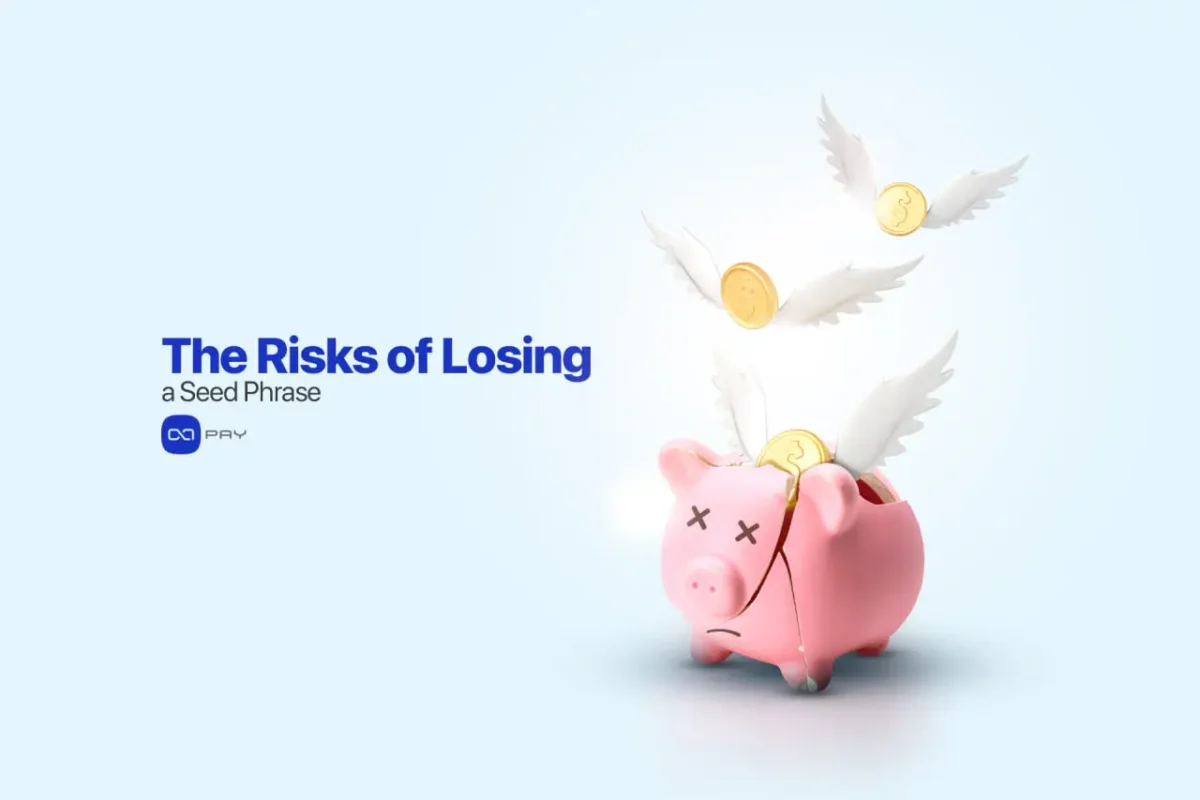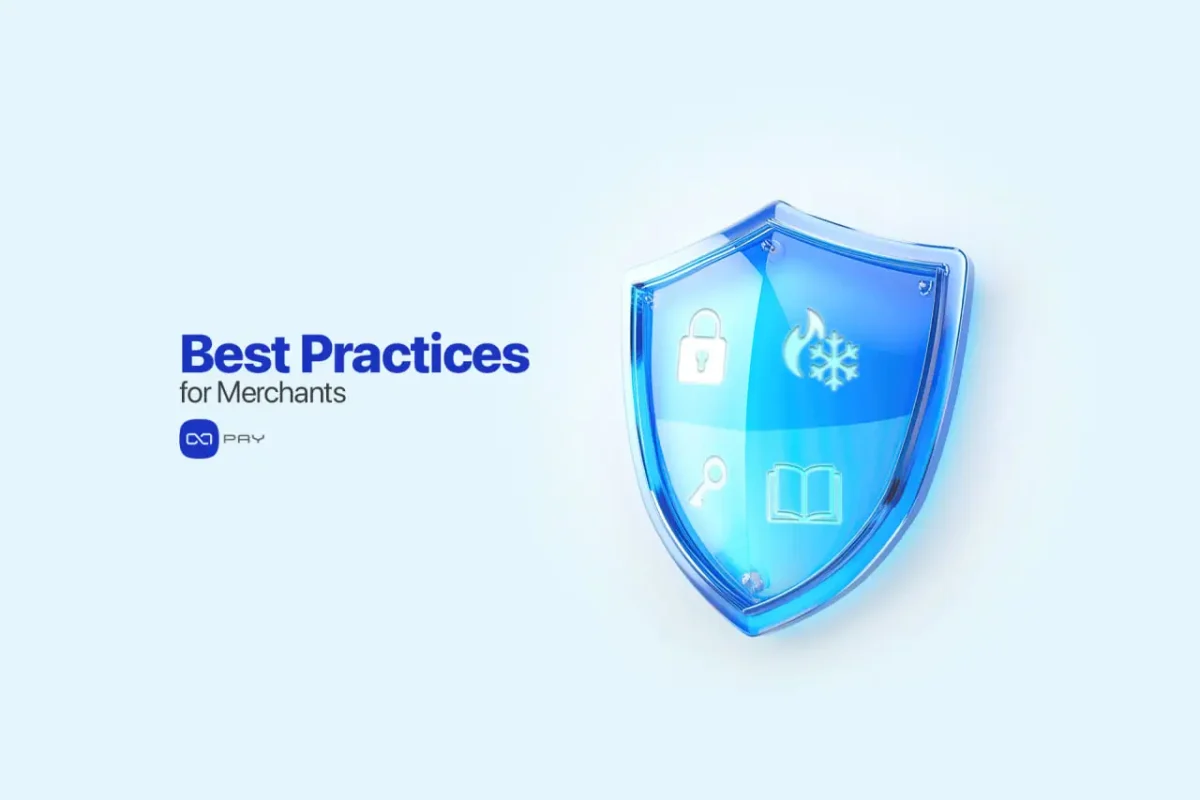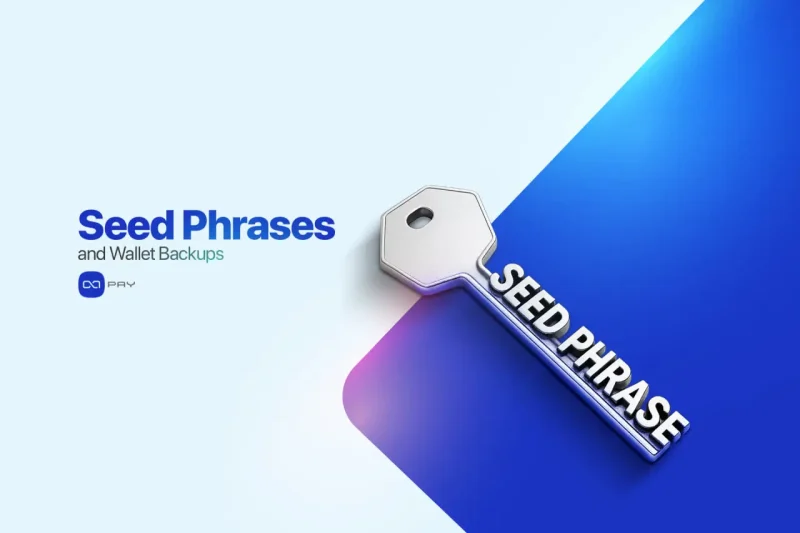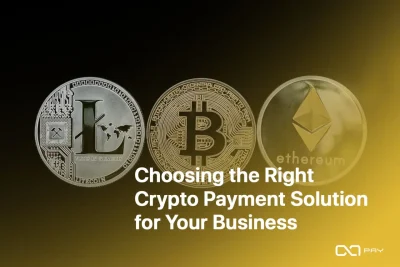当企业和个人踏入加密货币领域时,他们首先会学到的一点就是:所有权伴随着责任。与传统银行系统不同,区块链没有“忘记密码”选项。您能否访问资金取决于您如何妥善保护和备份钱包凭证。而助记词和钱包备份正是这种安全性的核心。.
在本文中,我们将解释什么是它们、它们为何重要、丢失它们的风险,以及商家如何应用最佳实践来保护它们。 加密支付.
什么是助记词和恢复密钥?
A 种子短语 (有时称为恢复短语)是由 12 到 24 个单词组成的序列,在您拨打电话时自动生成。 创建加密钱包. 这些词语并非随机生成;它们源自您钱包的加密密钥,代表着…… 主访问权限 存入您的资金。.
A 恢复密钥 或 备份密钥 从本质上讲,它是一种技术上的等效方法:在设备或应用程序丢失时,重新生成所有钱包地址和私钥。可以将助记词理解为人类可读的版本,而恢复密钥则相当于系统的原始数据。.
简单来说:
- 你的 公钥 就像你的钱包地址(与客户共享)。.
- 你的 私钥 这是你的密码(绝不会与他人分享)。.
- 你的 种子短语 这是终极备份,拥有它的人可以重新创建两个密钥并访问资金。.
技术解析:种子短语是如何生成的?
种子短语是使用标准化算法生成的,例如: BIP39. 钱包软件会将一个很长的随机加密数字转换成一个预定义字典中的人类可读单词列表(通常包含 2048 个单词)。这些单词代表用于生成钱包私钥的熵。实际上,这意味着您的 12-24 个单词的短语在数学上与钱包中的每个地址和密钥都紧密相关。
为什么这些密钥如此关键?
助记词和恢复密钥是 单一真理点 在区块链中,谁拥有这些资金,谁就控制了这些资金。.
对于用户而言:即使丢失了手机、笔记本电脑或钱包应用程序,也能确保他们找回资产。.
对于商家而言:它保障了他们能够不间断地管理付款、退款和余额。.
如果没有安全可靠的备份,硬件故障、被盗,甚至简单的设备丢失都可能导致您永久无法访问自己的资金。与传统系统不同,这种系统没有中央机构可以重置访问权限。.

丢失种子短语的风险
丢失助记词的后果远不止是造成不便。风险包括:
- 资金永久性损失如果短语丢失且没有备份,则没有恢复机制。.
- 未经授权的访问如果被其他人发现,他们可以立即掏空你的钱包。.
- 运营中断对于商家而言,这可能意味着付款被阻止、客户退款延迟或业务流动性冻结。.
现实案例表明,每年有数十亿美元的加密货币因用户丢失或处理不当助记词而损失。.
真实案例:种子短语丢失的情况
- 据报道,2013 年,一位比特币早期用户丢弃了一个包含 7500 个比特币的硬盘,由于没有备份助记词,价值数亿美元的资金仍然无法追回。.
- 2019年,一家加拿大加密货币交易所倒闭,原因是其首席执行官去世,而他是唯一掌握恢复密钥的人。客户损失了超过100亿至50亿加元的资产。.
- 许多商家和个人仍然会面临较小规模的损失,例如员工处理不当或丢失助记词,导致资金冻结和运营中断。.
这些案例表明,种子短语不仅仅是一种技术形式,它们可以决定业务的连续性和不可逆转的损失。.
备份方法:纸质备份、硬件备份和多地点备份
备份助记词并非可有可无,而是钱包安全的基础。助记词和钱包备份共同构成了长期保护加密货币访问的核心。如果没有可靠的备份,资金永久丢失的风险将急剧增加。商家应谨慎选择恢复信息的存储方式和位置。.
纸质备份: 最常见的方法是将助记词写在纸上,然后妥善保管在保险箱或储藏箱中。虽然这种方法简单,但纸张容易受到火灾、水灾和物理损坏。.
硬件或金属备份: 为了提高耐用性,商家可以将种子短语刻印或存储在钢板或钛板上。这些钢板或钛板防火防水,是长期保护的理想选择。.
多地点存储: 仅依赖单一备份位置会造成单点故障。相反,应将加密备份或物理备份保存在多个安全场所,例如家中的保险箱和银行金库。.
测试恢复: 备份只有在有效的情况下才有用。商家应定期在备用设备上测试恢复功能,以确保备份准确且功能正常。.
备份操作须知清单
✅ 应该做的事
- 用纸笔或金属片将你的助记词写下来。
- 存储副本 多个安全地点
- 在完全依赖备份之前,请先测试钱包恢复功能。
- 使用耐用、防火、防水的存储方案
- 将备份文件离线保存,避免数字化泄露。
❌ 禁止事项
- 不要将助记词存储在云服务或电子邮件中。
- 不要截屏或拍摄恢复文字的照片。
- 不要与公司以外的任何人共享备份。
- 不要把助记词放在显眼的地方,比如桌子或抽屉里。
- 不要只依赖一份备份,冗余备份至关重要。

商家最佳实践
在钱包管理方面,商家面临的首要选择是是否使用…… 托管钱包 或 非托管钱包.
依赖 OxaPay的托管钱包 用户将受益于一个无需自行存储或保护助记词的系统。这意味着:
- 不会丢失恢复词
- 简单易用的体验
- 内置支付管理、兑换和提款功能
- 无需复杂的手动备份即可实现专业级安全保障
对于企业而言,这可以减轻运营压力,让他们专注于销售和客户体验,同时保持加密资金的安全性和可访问性。.
非托管钱包最佳实践
另一方面,, 偏好非托管钱包的商家 用户需对自己的资金负全部责任。虽然这提供了直接控制权,但也需要谨慎的风险管理。以下是针对非托管钱包用户的几项最重要的最佳实践:
- 使用多重签名钱包这样可以防止单点故障,因为交易需要多重审批。.
- 冷热钱包分开存放:只将营运资金存放在热钱包中,并将储备金离线存储。.
- 定期测试备份仅仅记下助记词是不够的,还要验证它是否真的能够恢复钱包。.
- 培训您的员工对员工进行有关网络钓鱼、虚假应用程序和社会工程的培训。.
- 文件程序明确的钱包访问和密钥管理内部规则可以减少错误。.
使用非托管钱包的商家快速检查清单
- ✅ 企业账户已启用多重签名钱包。.
- ✅ 热钱包仅用于日常运营资金。.
- ✅ 冷钱包备份已测试并验证。.
- ✅ 助记词安全地离线存储。.
- ✅ 员工接受过识别网络钓鱼攻击的培训。.
- ✅ 制定钱包访问和审批的书面政策。.
遵循这些操作规范和检查清单,使用非托管钱包的商家可以保护资金免遭丢失或被盗。然而,对于许多企业而言,便捷性、安全性和集成工具之间的平衡使得像 OxaPay 钱包这样的托管解决方案成为颇具吸引力的选择。.
备份的重要性:商家的安全网
对于商家而言,助记词和备份不仅仅是技术细节,更是整个支付系统的安全网。试想一下,如果设备发生故障、数据被意外删除,甚至笔记本电脑被盗,如果没有备份,资金可能永远无法找回,这将危及业务运营和客户信任。.
有了完善的备份策略,商家就能安心运营,即使在最糟糕的情况下,也能掌控资金、保持流动性,并持续不间断地为客户提供服务。备份不仅仅是保护资产,更是维护业务连续性和声誉。.
结论:为加密支付奠定安全基础
助记词和钱包备份的重要性常常被低估,直到为时已晚。对个人而言,它们保护着个人储蓄;对商家而言,它们保障着整个收入来源。通过了解它们的重要性并应用最佳实践,企业可以避免代价高昂的错误,并建立客户信任。.
👉 如果您正在寻找一种可靠的加密货币支付方式,请使用 OxaPay 加密支付网关. 它允许您安全地接受多种加密货币,手续费低廉,并提供用户友好的工具,旨在确保您的业务顺利运行。.




